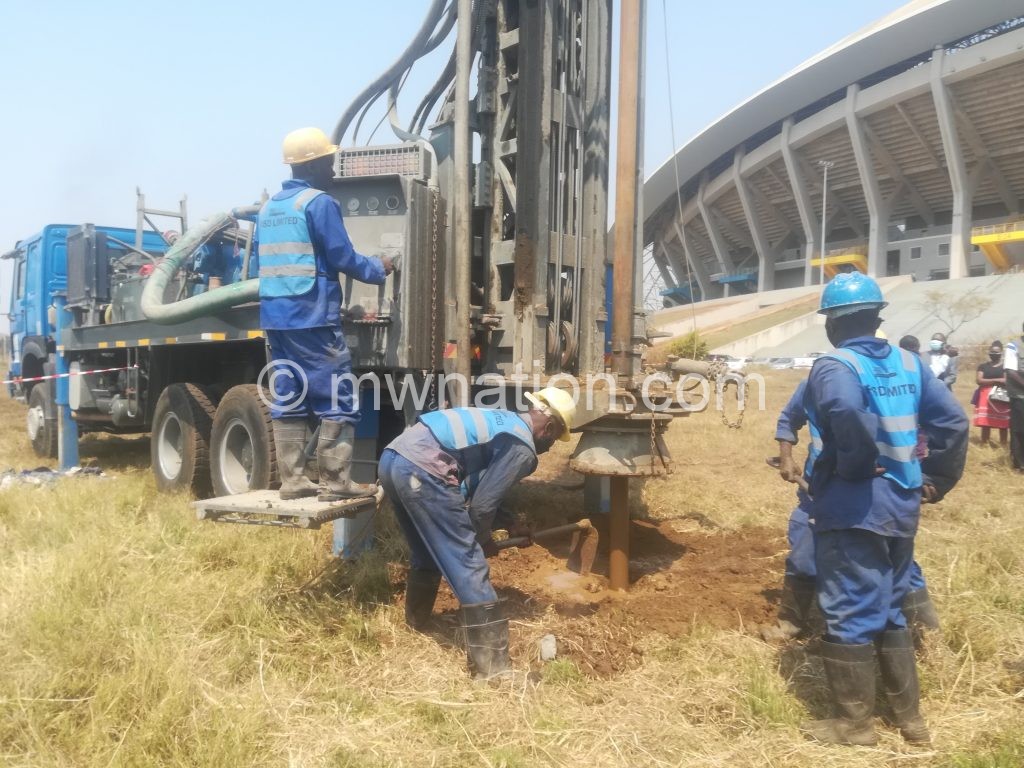
Government will be saving millions of kwacha annually from Bingu National Stadium (BNS) water bills once a solar-powered pump system donated by the Foundation for Irrigation and Sustainable Development (Fisd) is installation at the facility.
Ministry of Youth and Sports struggles to raise K7 million for monthly water bills, a development which has left the facility’s two pitches dry with grass withering.

The facility’s toilets have also been affected, triggering sanitation concerns.
Speaking when he inspected the project yesterday, Minister of Youth and Sports Ulemu Msungama thanked Fisd for the donation.
“When I was appointed into office, I wrote to a number of companies asking for their support and Fisd is one of them. I even had an interface with them. One of the challenges I mentioned was water problems,” he said.
Msungama said Fisd has committed to carry out the project for free. It is projected to cost nearly K100 million.
“What it means is that the K7 million we were using to buy water monthly will be used for other initiatives aimed at improving sports,” he said.
Fisd head of drilling and chief of external operations Jack Kujaliwa sounded optimistic that the system will be able to supply enough water to meet the facility’s demand.
He said: “We did geophysical survey and a thorough audit. We are drilling one of the biggest boreholes. Thereafter we will put solar panels.
“We are anticipating that we will be getting between 10 to 20 litres of water per second which will be channeled to toilets and the pitch. We can assure you the water will be enough.”
The BNS, constructed from a multi-billion kwacha Chinese loan deal, is the biggest sport facility in the country.
However, its poor management has been attracting calls for its privatisation.
Some of the challenges it faces include interrupted power supply as it is frequently disconnected due to swelling electricity bills. Additionally, it has a shortage of workers resulting in poor services delivery.
The stadium has hosted four Flames matches against Morocco, Comoros Island, Madagascar and Lesotho since it was opened three years ago.
Source: The Nation_11th September 2020_Clement Chinoko-Staff Reporter
